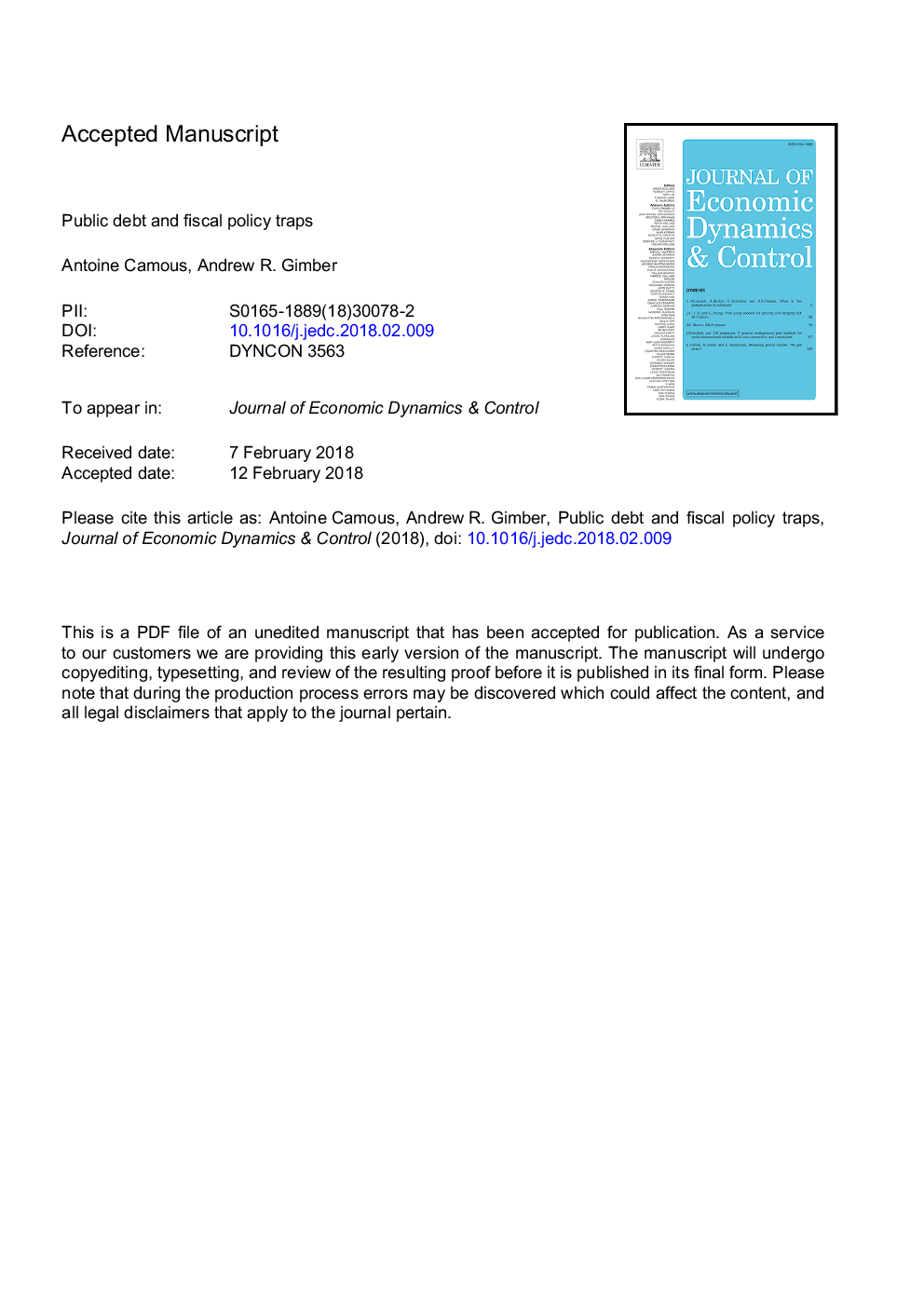| Article ID | Journal | Published Year | Pages | File Type |
|---|---|---|---|---|
| 7358467 | Journal of Economic Dynamics and Control | 2018 | 37 Pages |
Abstract
We present a theory linking the cyclicality of tax policy to inherited public debt. When debt is low, tax policy is countercyclical, in the sense that the government responds to low output by setting a low tax rate. Above a threshold level of debt, however, optimal tax policy becomes procyclical. This creates the possibility of self-fulfilling crises (“fiscal policy traps”), in which output is low because households expect high taxes, and the government sets high taxes because output is low. Our model suggests why highly indebted governments might implement procyclical tax policy even without facing high sovereign risk premia.
Related Topics
Physical Sciences and Engineering
Mathematics
Control and Optimization
Authors
Antoine Camous, Andrew R. Gimber,
